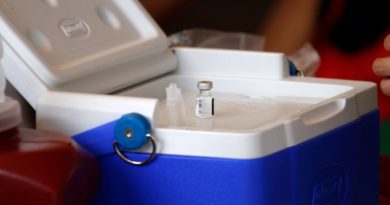First possible case of Covid-19 reinfection in US in Nevada man, researchers say
Genetic tests indicate the patient was infected with two different varieties of the virus, the team at the University of Nevada Reno School of Medicine and the Nevada State Public Health Laboratory reported.
The patient was first diagnosed with coronavirus in April after he had a sore throat, cough, headache, nausea and diarrhea, the researchers wrote in a pre-print study posted Thursday. He got better around April 27, and he tested negative for the virus twice afterwards.
He continued to feel well for about a month. Then on May 31 he sought care for fever, headache, dizziness, cough, nausea and diarrhea. Five days later, he was hospitalized and required ongoing oxygen support. He was tested again for Covid-19 and the results were positive.
The Nevada researchers examined genetic material from both coronavirus specimens collected from the man. Their analysis suggests he had two distinct viral infections.
The pre-print study has not yet been peer-reviewed by a journal, but the researchers noted that the findings suggest humans can catch Covid-19 multiple times.
It’s not the first case documented globally.
The pre-print study — which the University of Hong Kong said on Monday has been accepted by the journal Clinical Infectious Diseases — found that the man was reinfected with two different versions of the virus 142 days apart.
“After one recovers from COVID-19, we still do not know how much immunity is built up, how long it may last, or how well antibodies play a role in protection against a reinfection,” Mark Pandori, the director of the Nevada State Public Health Laboratory, said in a news release Thursday.
“If reinfection is possible on such a short timeline, there may be implications for the efficacy of vaccines developed to fight the disease. It may also have implications for herd immunity,” Pandori said. “It is important to note that this is a singular finding. It does not provide any information to us with regard to the generalizability of this phenomenon.”
In the Hong Kong case, researchers said the man experienced coronavirus symptoms during his first bout of Covid-19, but that he didn’t have any obvious symptoms the second time.





